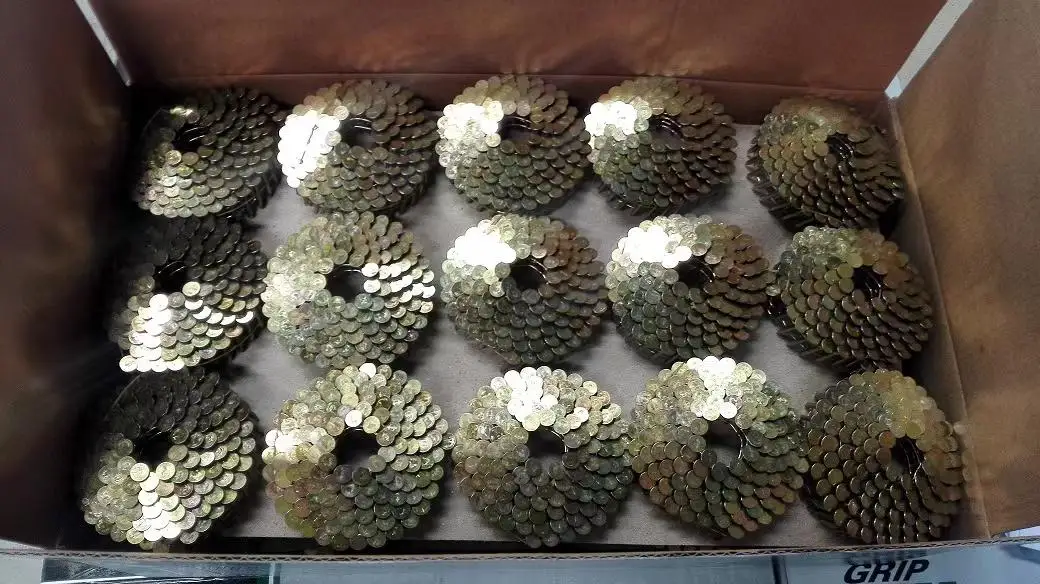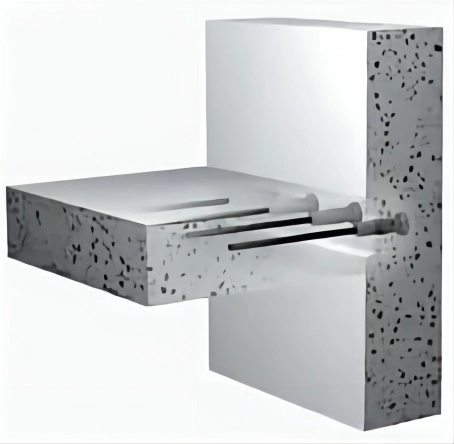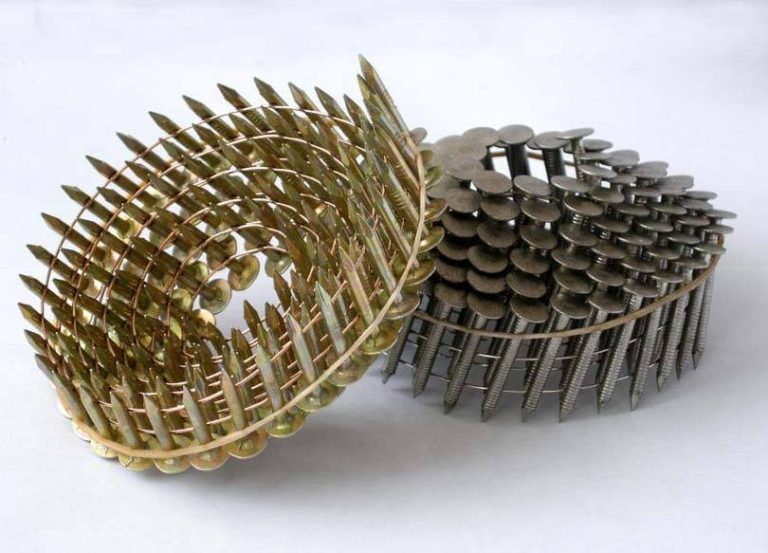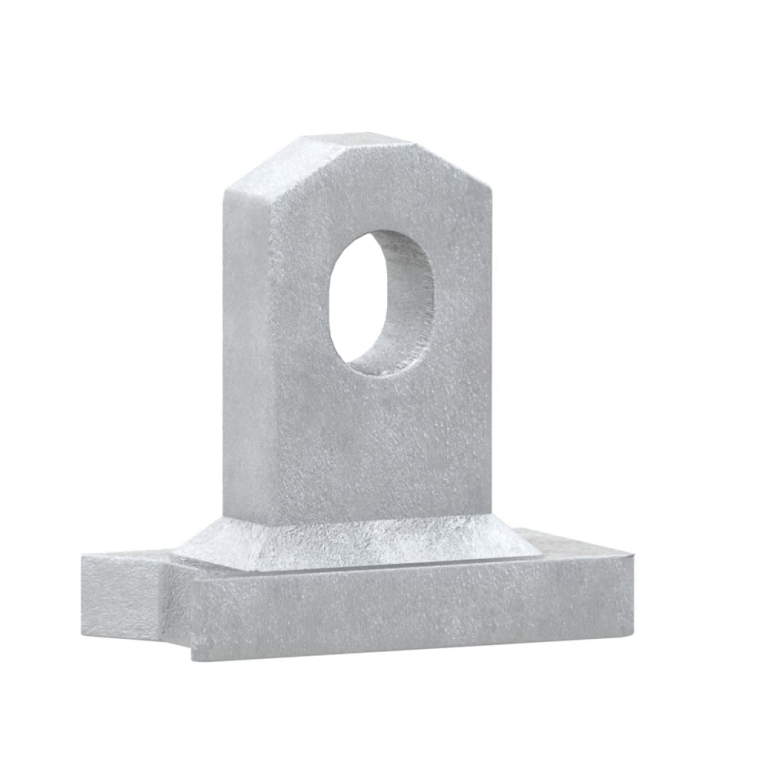In the realm of construction and industrial tasks, comprehending the elements that play a vital role in efficiency and longevity is essential. One such element that proves invaluable in heavy-duty applications is the coil nails. These specialized fasteners are engineered to improve performance across various challenging environments, making them essential for professionals in need of strong and dependable fastening solutions.
Understanding Coil Nails
Definition and Purpose
Coil nails are a type of nail arranged in a coiled configuration, allowing them to be fed into nail guns in a highly efficient manner. Their primary purpose is to provide a quick and reliable method for fastening materials in heavy-duty applications. The coiled design allows for a large number of nails to be loaded into a nail gun at one time, reducing the need for frequent reloading and significantly increasing productivity.
Construction and Design Features
The design of coil nails includes several key features that make them suitable for heavy-duty tasks. They are typically connected with a thin wire which can be either smooth or ring-shaped, ensuring they stay together in the coil until they are used. This coiled arrangement allows them to fit into the magazine of a nail gun, facilitating rapid and sequential firing. Some designs also feature a conically wound coil that helps with maintaining the structural integrity of the nails during high-load operations.
Common Materials Used in Coil Nails
Coil nails are made from a variety of materials, each chosen for its specific properties that help in achieving durable and reliable fastening. Common materials include steel, stainless steel, and galvanized steel. Steel nails are known for their strength and affordability, while stainless steel options offer enhanced resistance to corrosion, making them ideal for outdoor or moist environments. Galvanized coil nails are coated with a layer of zinc, which provides moderate corrosion resistance at a lower cost compared to stainless steel.
Advantages of Using Coil Nails in Heavy-Duty Applications
Increased Efficiency and Speed
Benefits of Fast Loading Mechanisms
One of the primary benefits of utilizing coil nails in demanding applications is the enhanced efficiency they provide. The coiled design permits workers to load a substantial quantity of nails into the nail gun simultaneously. This feature minimizes the downtime needed for reloading, thus allowing uninterrupted operation and sustaining high productivity levels. This rapid-loading capability proves particularly advantageous in tasks that necessitate fastening numerous nails in a brief timeframe.
Reduction in Downtime Due to Reloading
The compact coiling of the nails ensures that a large quantity can be stored in the nail gun’s magazine at any given time. As a result, workers spend less time reloading and more time on actual nailing tasks. This efficiency is particularly crucial in large-scale projects where time management and productivity are key to meeting deadlines.
Durability and Strength
Enhanced Holding Power
Coil nails provide superior holding power compared to traditional nails. The design ensures that they penetrate deeply and hold materials together firmly, which is essential in heavy-duty applications. This holding power is primarily due to the design features such as ring shanks or spiral threads that increase the nail’s grip in the material.
Longer Lifespan Compared to Other Nail Types
Due to their robust construction and high-quality materials, coil nails generally have a longer lifespan compared to other types of nails. The durability of these nails means they can withstand heavy use and harsh conditions without compromising their performance. This longevity ensures that structures fastened with coil nails maintain their integrity over time, reducing the need for frequent repairs or replacements.
Types of Heavy-Duty Applications for Coil Nails
Industrial Construction
In the realm of industrial construction, the demand for rapid, dependable, and robust fastening solutions is critical. Coil nails fulfill this need exceptionally well, particularly in high-volume environments. They are frequently utilized in activities like framework construction, large structure assembly, and heavy panel installation, where both speed and durability are crucial.
Framing and Roofing
Framing and roofing are core applications where coil nails prove invaluable. The nails are used extensively in framing to fasten wooden components together reliably. In roofing, they are used to secure shingles and other roofing materials, ensuring that the structure is capable of withstanding environmental stresses such as wind, rain, and temperature fluctuations.
Pallet and Crate Assembly
The assembly of pallets and crates is another area where coil nails shine. These applications require nails that can provide strong holding power and durability to withstand heavy loads and rough handling. Coil nails are ideal for securing the wooden components of pallets and crates, ensuring they hold up during transportation and storage.
Selecting the Right Coil Nails for Your Needs
Choosing the Correct Size and Length
Selecting the appropriate size and length of coil nails is crucial to ensure the nails meet the specific requirements of your project. The size and length will determine the nail’s holding power and penetration depth, which are essential for the integrity and stability of the assembly.
Understanding Different Coating Options
Galvanized Coating
Nails made from galvanized coil are treated with a zinc coating to prevent corrosion. This protective layer makes them ideal for outdoor use and in conditions where moisture may cause rust and deterioration.
Stainless Steel Coating
Stainless steel coil nails offer the highest resistance to corrosion and are ideal for applications exposed to harsh weather conditions or environments where chemical exposure is a concern.
Vinyl-Coated Options
Vinyl-coated coil nails provide another layer of protection against moisture and improve driving efficiency by reducing friction. They are often used in construction projects requiring extra durability and protection against the elements.
By understanding the various aspects of coil nails, including their design, materials, advantages, applications, and selection criteria, professionals can make informed decisions to enhance the efficiency and durability of their projects.
Proper Usage and Installation Techniques
Tools Compatible with Coil Nails
Recommended Nail Guns
To achieve the best results when working with coil nails, it’s crucial to use the appropriate nail gun. Pneumatic nail guns are frequently recommended because of their power and efficiency. These tools are specifically designed to manage the high volume and rapid-fire needs that coil nails require. Additionally, there are gas-powered and cordless versions available, which offer increased mobility on job sites while maintaining performance standards. When choosing a nail gun, it is important to align the gun’s specifications with the type and size of coil nails to guarantee smooth operation and dependable fastening.
Maintenance Tips for Tools
Maintaining the tools used with coil nails is vital for ensuring their longevity and consistent performance. Regular cleaning of the nail gun’s magazine and feed mechanism helps prevent debris buildup that can impede function. Lubrication of moving parts is also necessary to prevent wear and ensure smooth operation. Inspecting the nail gun for worn or damaged components and replacing them promptly can prevent malfunctions during critical tasks. Proper storage of both the nail gun and coil nails, away from moisture and extreme temperatures, also helps prolong their usability and reliability.
Best Practices for Safety
Safety is paramount when working with coil nails and high-powered nail guns. Always wear appropriate personal protective equipment, including safety glasses, ear protection, and gloves. Ensuring a stable and secure work environment minimizes the risk of accidents, such as slips or unintended nail discharge. Familiarize yourself with the nail gun’s safety features, such as trigger locks and anti-dry-fire mechanisms, to prevent unintended firings. Regular safety training and adherence to manufacturer guidelines further contribute to a safe and efficient working environment.
Troubleshooting Common Issues with Coil Nails
Preventing Jamming Problems
Jamming can be a common issue when using coil nails, but it can be minimized with some preventative measures. Using clean, high-quality coil nails reduces the risk of jams caused by bent or defective nails. Regular maintenance of the nail gun, including cleaning and lubrication, helps keep the feed mechanism functioning smoothly. Proper alignment of the coil nails within the magazine ensures they are fed correctly into the firing chamber, reducing the likelihood of jams. Ensuring appropriate air pressure and using recommended nails for your specific nail gun are also key steps in preventing jamming issues.
Addressing Corrosion Concerns
Corrosion can greatly impact the durability and efficiency of coil nails, particularly in environments that are damp or exposed to the elements. To combat this issue, selecting the appropriate material and coating for your coil nails is essential. Stainless steel and galvanized coil nails are highly recommended because they resist rust and degradation effectively. Additionally, to enhance protection, store unused coil nails in a dry, controlled setting to minimize moisture exposure. Consistently inspecting stored nails and promptly removing any that are damaged or corroded can help avert corrosion-related problems during their use.
Final Thoughts on Using Coil Nails
In conclusion, coil nails are a vital component in the arsenal of any professional dealing with heavy-duty applications. Their unique design and robust construction offer significant advantages in terms of efficiency, durability, and holding power. By selecting the right type of coil nails and using compatible tools, professionals can tackle demanding tasks with confidence and precision. Proper usage, regular maintenance, and adherence to safety practices ensure that coil nails provide reliable and long-lasting fastening solutions across various industrial and construction applications. By understanding and addressing common issues such as jamming and corrosion, users can maximize the performance and lifespan of their coil nails, making them an invaluable asset in any construction project.
BAOQI coil nails are high-quality fasteners used in various construction and woodworking applications. These nails are made from premium-grade steel, ensuring durability and strength.The coil nails feature a unique coil shape, allowing for easy loading and feeding into pneumatic nail guns. This design also helps to prevent jamming and ensures smooth and efficient operation.
BAOQI coil nails are available in different lengths and gauges to suit different applications. They are commonly used in framing, roofing, siding, and decking projects. The nails have a sharp point and a ring shank, providing excellent holding power and reducing the risk of nail pullout.
These coil nails are manufactured with precision and undergo strict quality control measures to meet industry standards. They are corrosion-resistant, making them suitable for both indoor and outdoor use.
BAOQI coil nails are trusted by professionals worldwide for their reliability and performance. Whether you are a contractor, carpenter, or DIY enthusiast, these nails are a reliable choice for your fastening needs.









